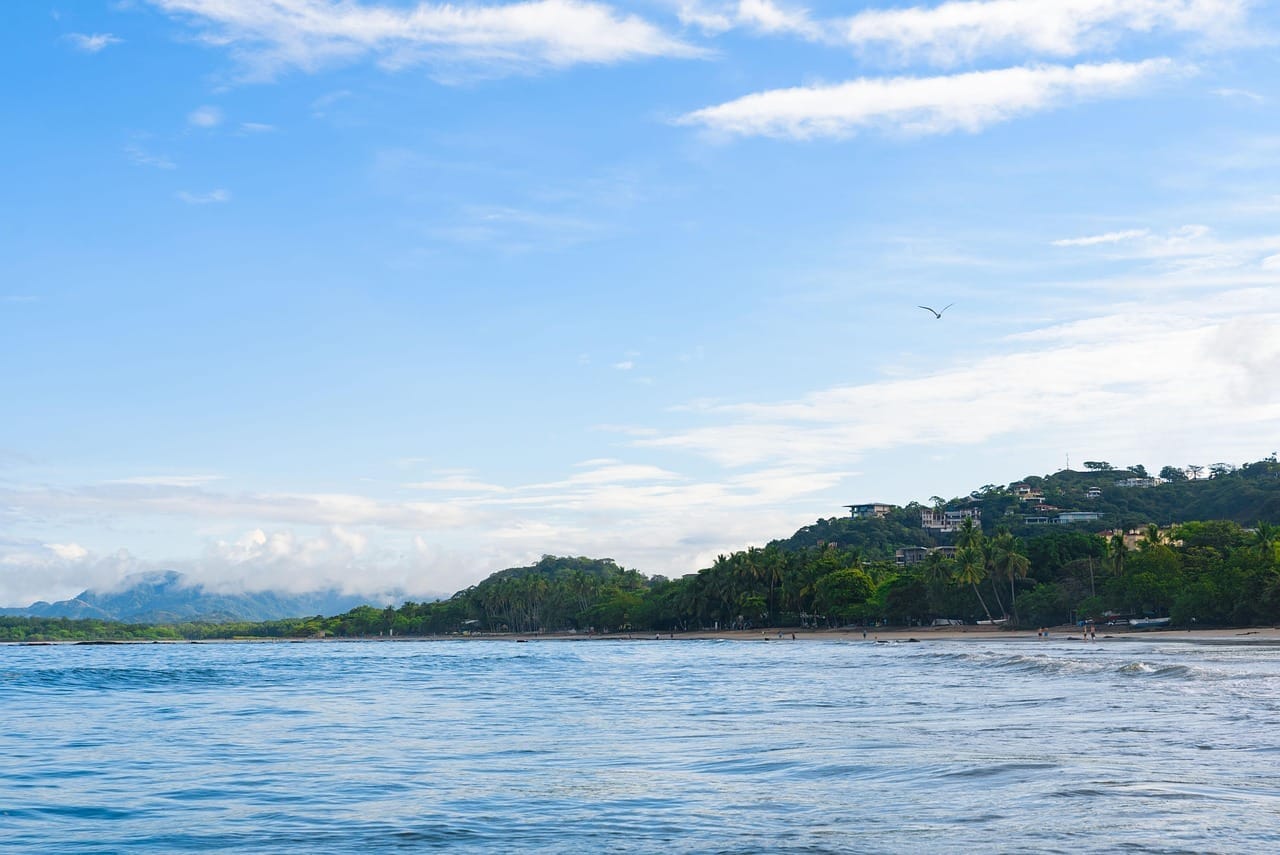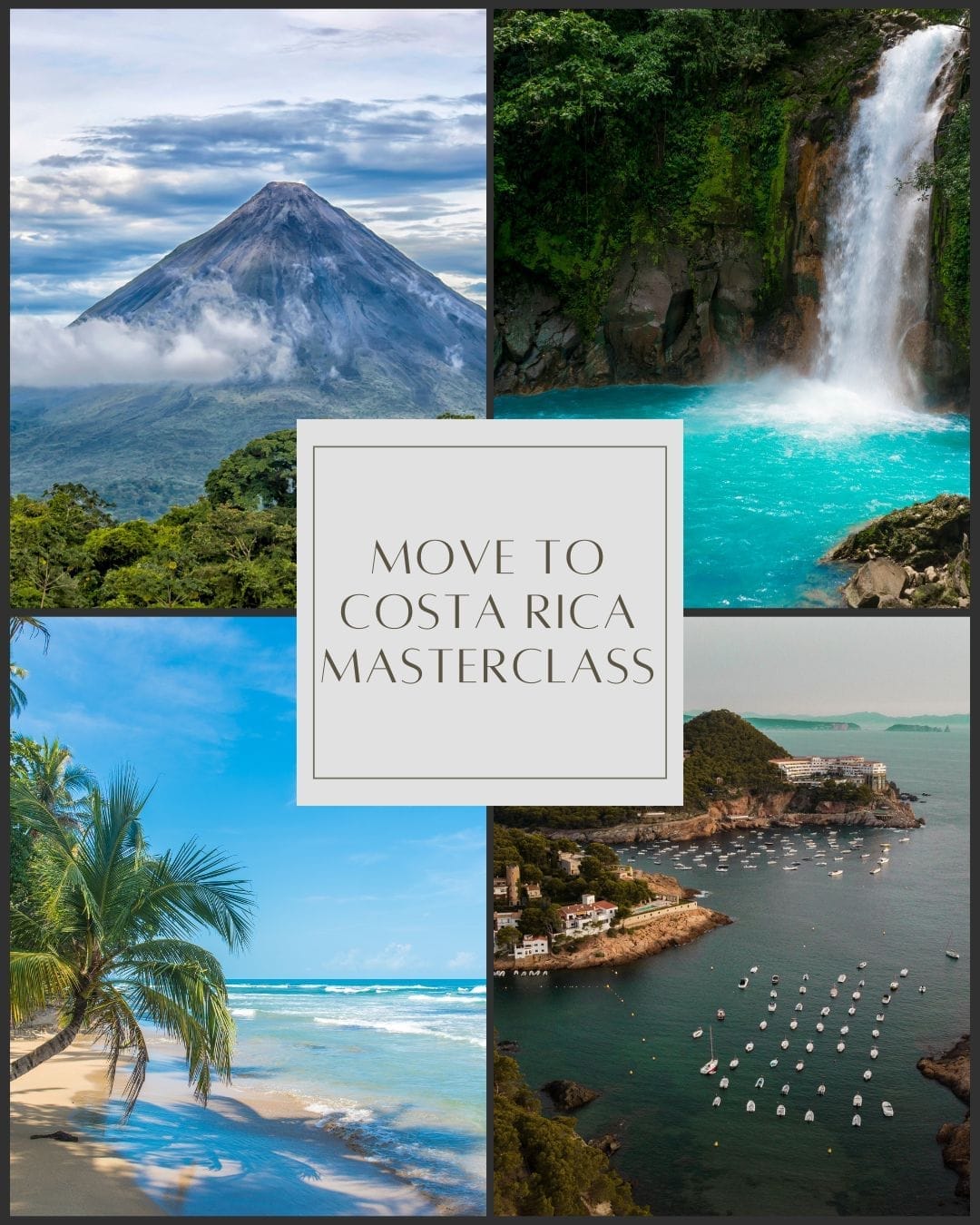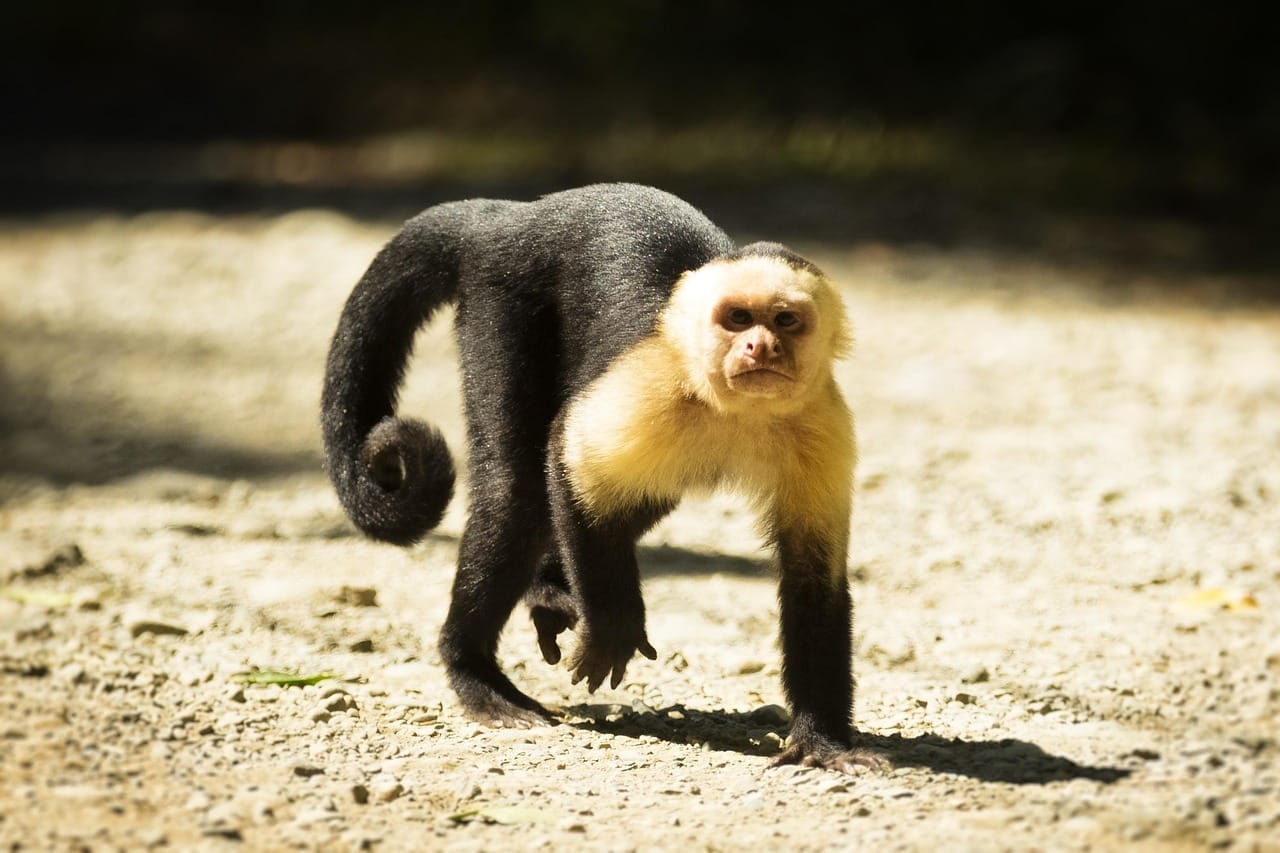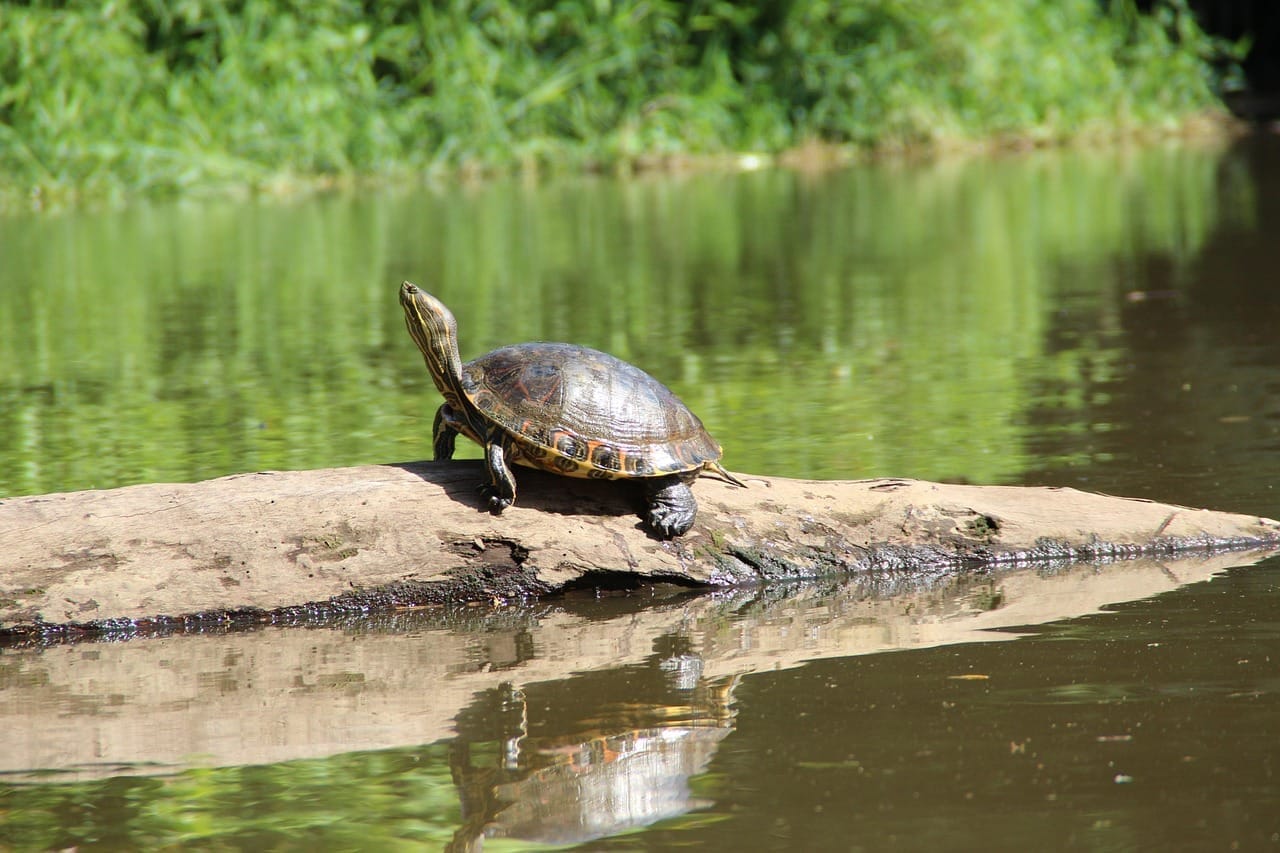
Why Retiring in Costa Rica Made Financial Sense for Us

When my partner and I first considered leaving London for Costa Rica five years ago, I'll admit I approached it the way I approached everything in my finance career: with a spreadsheet, a healthy dose of skepticism, and a demand for hard data. After three decades in the city, I wasn't about to make one of life's biggest decisions on romantic notions of tropical sunsets and beach living.
Yet here I sit in Nosara, watching howler monkeys traverse the canopy outside my window, knowing that our decision wasn't just emotionally fulfilling; it was financially brilliant. The numbers don't lie, and in Costa Rica's case, they tell a compelling story that more UK retirees should hear.
The Housing Mathematics That Changed Everything
Let me start with the most dramatic shift in our financial picture: housing costs. Our modest three-bedroom terrace in Zone 3 London was valued at approximately £650,000 when we sold. Nothing fancy, just a standard family home in an area that had gentrified over the years.
In Nosara, we purchased a stunning two-bedroom villa with an infinity pool, ocean views, and a half-acre of tropical gardens for $425,000 (roughly £340,000 at the time). But here's where it gets interesting: property taxes on our London home ran about £2,400 annually. In Costa Rica, our property tax, even on this larger, more luxurious property, amounts to approximately $1,200 per year.
The equity release from downsizing wasn't just substantial; it was transformative. That £310,000 difference became our financial cushion, investment capital, and emergency fund all rolled into one. We invested a portion conservatively, kept some liquid for flexibility, and suddenly found ourselves in a position where our passive income could genuinely support our lifestyle.
The Daily Cost of Living: A Detailed Analysis
Before moving, I tracked every expense for six months in London. I compared it to projected costs in Costa Rica based on extensive research and conversations with expats already living here. The reality has actually exceeded my projections.
Food and Groceries
In London, our weekly shop at Waitrose or Sainsbury's typically ran £120-150 for the two of us. Here in Costa Rica, we spend roughly $80-100 per week (£64-80) on a combination of local farmers' markets (ferias) and supermarkets. And the quality? The produce is incomparably fresh; picked yesterday rather than shipped across continents.
Yes, imported goods are expensive. That jar of Marmite or packet of proper tea bags will cost you double what you'd pay in the UK. But here's what I learned: when you're surrounded by incredible local fruits, vegetables, coffee, and seafood, you stop craving those imports as much. We've adapted our palates, and our grocery bills have dropped by approximately 35%.
Utilities and Services
This category represents one of the most pleasant surprises. Our London utility bills—electricity, gas, water, and council tax—totaled approximately £350 per month. In Costa Rica, even with air conditioning running most afternoons, our electricity bill averages $120 (£96) per month. Water is $15-20. The internet (which is actually faster and more reliable than what we had in London) costs $60 per month.
No gas bills, obviously, most homes are electric. No council tax equivalent beyond the minimal property tax I mentioned. The total? Roughly $200 monthly (£160), representing a 54% reduction in utility costs. Over a year, that's savings of £2,280.
Transportation
In London, we maintained one car primarily for weekend getaways, paying £180 monthly for insurance, £120 for the congestion charge zone we occasionally entered, and roughly £200 in petrol. Add annual MOT, servicing, and parking permits, and we were looking at about £7,000 annually.
Here, we own one modest 4x4 (essential for rainy season roads). Insurance costs $800 annually. No congestion charges, no parking fees. Fuel is comparable in price. Annual costs? Approximately $2,500, including maintenance (£2,000). That's a 71% reduction, saving us £5,000 yearly.

If you're serious about making this life-changing move, our Move to Costa Rica Masterclass online course provides comprehensive guidance on everything from residency requirements and healthcare to finding the perfect community and integrating into local culture, helping you make a smooth and successful transition.
Healthcare: The Most Complex Calculation
This is where many potential expats get nervous, and rightfully so. Healthcare quality and cost are critical factors in any retirement decision. I spent more time researching this aspect than any other.
Costa Rica operates a dual system: the public Caja (CCSS) and private healthcare. As residents, we're enrolled in the Caja, paying approximately 11% of our declared income (with minimums and caps). For us, this works out to roughly $200 per month, combined for both of us. This covers everything—doctor visits, specialists, hospitalizations, prescriptions, and even some dental.
Additionally, we maintain private health insurance through INS (Instituto Nacional de Seguros) at a monthly rate of $180 for both of us. This provides us with access to private hospitals that offer minimal wait times and English-speaking doctors. Total healthcare cost: $380 monthly or $4,560 annually (£3,648).
In the UK, we were fortunate to have the NHS, but we also maintained private health insurance through BUPA at £320 monthly (£3,840 annually) for shorter wait times and choice of consultants. So our healthcare costs here are comparable, but the quality and accessibility of private care are exceptional. I've had two minor surgical procedures here; the facilities rivaled anything I experienced in London, and the total out-of-pocket cost was less than my BUPA excess would have been.
Tax Considerations: A Nuanced Picture
I must emphasize: I'm not a tax advisor, and everyone's situation is unique. That said, I can share our experience navigating this complex terrain.
Costa Rica operates on a territorial tax system—you're taxed only on income earned within Costa Rica. Our UK pensions and investment income remain untaxed here, provided they originate outside Costa Rica. We still file UK tax returns and pay tax there on our UK-sourced income, but the rates are considerably lower than they would be if we were UK residents due to our non-resident status.
The tax treaty between the UK and Costa Rica prevents double taxation, which was crucial for our planning. We work with both a UK accountant familiar with expat taxation and a local Costa Rican accountant (gestor) to ensure compliance in both jurisdictions.
The net result? Our effective tax rate has decreased by approximately 18% compared to what we paid as UK residents. It wasn't the primary driver of our decision, but it certainly sweetened the proposition.

The Lifestyle Value Equation
Pure numbers only tell part of the story. What's transformed our financial picture isn't just spending less; it's spending differently, and deriving more value from every pound (or dollar).
In London, entertainment meant expensive theatre tickets, pricey restaurant meals, and costly weekend breaks to escape the city. A night out easily ran £150-200. Here, world-class entertainment is often free or cheap: sunset beach walks, wildlife watching, community events, and outdoor activities. When we dine out, an excellent meal at a nice restaurant costs $50-$ 60 for both of us, including wine.
We've replaced our gym membership (£95 monthly in London) with beach walks, swimming, and yoga classes that cost $8 per session. Our social life revolves around potluck dinners with other expats and Ticos, shared beach days, and community gatherings, all of which are essentially free beyond our food contributions.
The result? Our monthly discretionary spending has dropped from approximately £800 in London to roughly $400 (£320) here—a 60% reduction—while our quality of life has improved exponentially.
The Unexpected Costs: Being Honest About Hidden Expenses
A proper financial analysis demands honesty about unexpected costs.
We've encountered several:
• Home maintenance: The tropical climate is harsh on buildings. We spend roughly $150-$ 200 monthly on preventive maintenance—things rust, wood rots, and concrete cracks. This was higher than anticipated.
• Travel to the UK: We return twice yearly to visit family. Flights and expenses run about $3,000 per trip, totaling $6,000 annually. I didn't factor this into our original budget.
• Import duties: Anything shipped from abroad faces significant import taxes. We learned to travel light and buy locally.
• Professional services: Lawyers, accountants, and immigration consultants are necessary for navigating residency and compliance.
Budget $2,000-$ 3,000 for the first year, then $500-$ 1,000 annually.
Even accounting for these unexpected costs, our total annual expenses remain 35-40% lower than they were in London.
Unlock the secrets of the world's most successful entrepreneurs with the
Global Wealth Navigator Newsletter
Discover the world's best destinations offering a lower cost of living paired with an enriched quality of life with the Global Wealth Navigator Newsletter. Whether you're a retiree or an entrepreneur, we dive into strategies that open doors to international investments, tax optimizations, and discover the finest destinations offering a superior quality of life. Don't let borders or routine define you; lets find your ideal spot in the world, regardless of your income bracket.
The Bottom Line: Our Five-Year Financial Snapshot
Let me present the comparative annual costs, based on our actual tracked expenses:
London (Final Year):
• Housing costs (mortgage, council tax, maintenance): £18,000
• Utilities: £4,200
• Food and groceries: £7,200
• Transportation: £7,000
• Healthcare (private insurance): £3,840
• Entertainment and discretionary: £9,600
• Total: £49,840
Costa Rica (Current Annual Average):
• Housing costs (property tax, maintenance): £2,880
• Utilities: £1,920
• Food and groceries: £4,160
• Transportation: £2,000
• Healthcare (Caja + private insurance): £3,648
• Entertainment and discretionary: £3,840
• UK travel: £4,800
• Professional services and unexpected: £1,200
• Total: £24,448
Annual savings: £25,392
Five-year savings: £126,960 (~167,000 USD)
Add to that the £310,000 equity release from our housing, and our financial position has improved by nearly £437,000 over the past five years. That's not accounting for investment returns on that released equity, which have added substantially more.
The Intangible Returns on Investment
As someone who spent three decades analyzing financial statements, I've learned that the best investments often involve returns that don't appear on any spreadsheet.
My stress levels have plummeted. My partner and I spend more quality time together. We're more physically active, eating better, and sleeping soundly. We've built a community of friends from around the world. We're learning a new language and engaging with a different culture.
These factors don't show up in the annual savings calculation, yet they represent perhaps the greatest return on our decision to relocate.
Who Should Consider This Move?
Not everyone will benefit equally from relocating to Costa Rica. Based on our experience and conversations with dozens of expats, the move makes the most financial sense for:
• Homeowners in expensive UK markets: If you're sitting on substantial property equity in London, Southeast England, or other high-cost areas, the arbitrage opportunity is significant.
• Those with UK pensions or foreign income: The territorial tax system benefits those whose income originates outside Costa Rica.
• Couples or individuals comfortable with modest living: If you're not attached to designer brands, frequent luxury purchases, or metropolitan culture, your money goes dramatically further here.
• Those with moderate to good health: While healthcare is excellent, those with complex, ongoing medical needs requiring ultra-specialized care might find fewer options than in major UK cities.
• Adaptable personalities: 'Tico time' is real. Services can be slower. Bureaucracy can be frustrating. Those who can roll with these differences will thrive.

The Verdict After Five Years
When I left the City, colleagues thought I was mad. Some predicted we'd be back within a year, missing the 'real world' and British creature comforts. Five years on, we're more committed to this life than ever.
The financial case for retiring in Costa Rica exceeded even my optimistic projections. We're living better on less, with a cushion of savings and freed-up capital that gives us security and options. The lower cost of living isn't about deprivation; it's about different priorities and dramatically better value for money.
Could we have achieved similar financial results by moving to rural Scotland or Wales? Perhaps. But we wouldn't have had the weather, the biodiversity, the international community, or the adventure of truly immersing ourselves in a foreign culture.
Every relocation involves trade-offs. We miss our grandchildren's regular visits, the ease of popping to Marks & Spencer, and proper football matches. But financially, emotionally, and physically, this move has been one of the best decisions we've ever made.
The spreadsheet convinced me to take the leap. The reality convinced me to stay.
Ready to take the next step in planning your move to Costa Rica?
Our comprehensive Move to Costa Rica Masterclass provides detailed guidance on residency options, healthcare systems, real estate considerations, and financial planning.

If you're serious about making this life-changing move, our Move to Costa Rica Masterclass online course provides comprehensive guidance on everything from residency requirements and healthcare to finding the perfect community and integrating into local culture, helping you make a smooth and successful transition.
Written by James Whitman
After decades in London’s financial world, James retired to Nosara with his partner. He now writes about retirement strategy, financial planning, and healthcare abroad. His articles balance analysis with laid-back charm, helping readers plan wisely while enjoying the rewards of tropical life.
📍 From London, now in Nosara
James combines financial wisdom with insights from a tropical lifestyle, helping retirees and investors make informed choices for a secure and relaxed future.
Read Articles by James →
Global Citizen Life
© 2023 Global Citizen Life
All rights reserved
